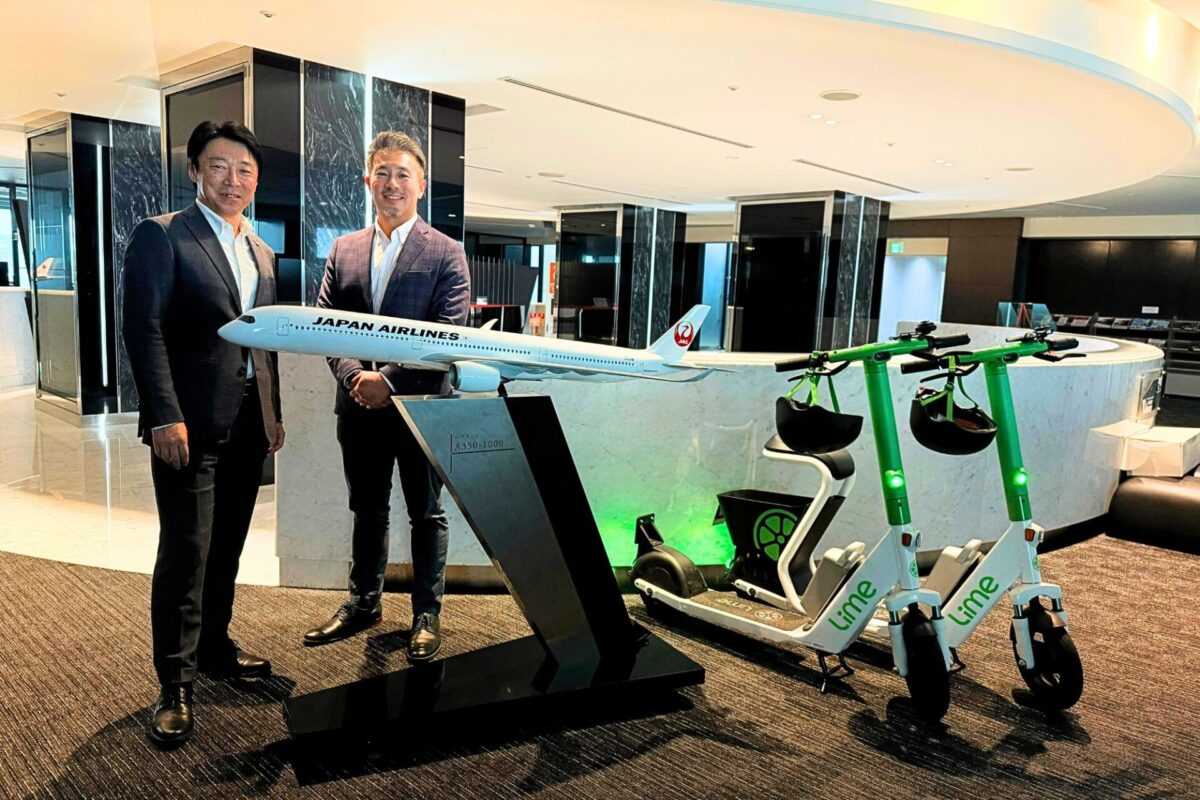Japan Airlines announced that it has entered into a partnership with Lime, a shared electric vehicle service provider in order to provide its customers more options to travel more sustainably.
The partnership, which is a first among airlines, comes at a time when local public transportation in Japan faces increased traffic congestion in urban areas, with limited alternative transportation options for business travelers and tourists.
Regional cities in Japan without adequate transportation are experiencing migration of residents and an aging population, demonstrating a need for new solutions.
San Francisco-based Lime was formerly known as Lime Bike, and was established in 2017. It provides electric stand up and seated scooters for shared use, expanding the use of shared, light-weight electric vehicles.
Use of electric vehicles in place of cars can significantly impact local travel by reducing car traffic congestion, decreasing overcrowding on existing public transport services, improving air quality and requiring less space for private car storage.
Lime launched its service in Japan on August 19, 2024, to promote electric micromobility as a form of public transportation and contribute to a carbon-free and sustainable future.
Japan Airlines and Lime’s partnership includes the following initiatives:
- Lime riders can earn 1 JAL mile for every 100 yen (tax excluded) spent on electric vehicle hire, marking the first-ever mileage collaboration between an airline and an electric micromobility sharing service company in Japan.
- Lime will target port installations based on Japan Airlines’ domestic network, beginning with the installation of standing and seated e-scooter ports in the city of Naha, Okinawa, aiming for 40 ports starting November 7, 2024, with 180 vehicles available for full-scale service.
“Lime is proud to partner with Japan Airlines to help solve the last-mile challenge and further integrate regional public transportation,” Terry Tsai, Country Manager and Regional Head of Asia Pacific for Lime said in a statement.
“Through this collaboration, we aim to help tourists and local residents reduce their carbon footprint, while providing more seamless connections across our service zones. We look forward to expanding our port network to make free electric micro mobility more convenient, and are committed to promoting safe and secure use of these vehicles to improve sustainable transportation in the region,” Tsai added.

